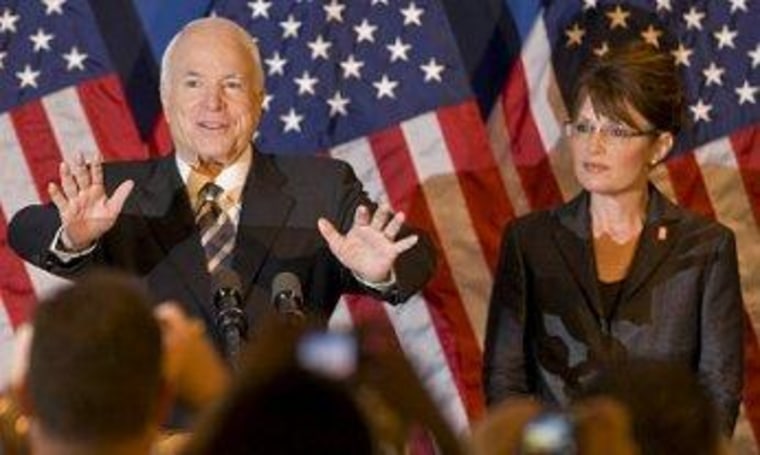Every presidential campaign cycle, at about this time, a large group of officials struggle with a problem. They want to be their party's vice presidential nominee, but they don't want to look like they want to be their party's vice presidential nominee. It's fine to want the gig, but lobbying for the VP slot is considered inappropriate, and undermines one's chances.
Dropping off resumes at the frontrunner's HQ isn't really an option, but neither is just sitting back and hoping for the best. Chris Cillizza summarized the delicate dance earlier in the week.
The worst thing you can do when it comes to the vice presidential sweepstakes is to make clear to the nominee -- and the media who covers the nominee -- that you badly want to be picked.Campaigning for the job reeks of unbridled political ambition and rightly raises concerns from the presidential nominee that you would put your own career betterment ahead of helping him get elected. [...]For the serious contenders for the vice presidential nomination ... silence is the best policy. Don't volunteer your interest in the job. When asked directly about it, deny interest.
But even that task can be tricky. There are all kinds of standard, acceptable responses from those who want to be considered while giving the appearance of detachment: "I'm happy with the job I already have"; "I'm not interested in the vice presidency"; "I'm confident I won't be chosen for the ticket"; "I have no intention of being the running mate"; etc. The key is to be non-committal -- express passive disinterest while leaving the door open.
There are some who find it difficult to walk this line. Virginia Gov. Bob "Ultrasound" McDonnell (R) generally appears a little too eager to be chosen -- he can't seek re-election and will have nothing to do in 2014 -- and has talked publicly about how he'd be honored to be considered. (He might as well walk around with a "Pick Me" sign around his neck.) Rick Santorum and Newt Gingrich have also said they're open, but no one seems to care.
Sen. Marco Rubio (R-Fla.) and South Carolina Gov. Nikki Haley (R) have arguably gone too far in the other direction -- both have said recently, on the record, that they would turn down a VP offer if they were invited to join the ticket. As Dave Weigel noted, there's at least one good example of a running mate having said the same thing before accepting the nominee's offer, but in general, those who want to be in the mix avoid phrases like "I'm not going to accept it" -- the line Rubio took.
As Mitt Romney solidifies his role as the 2012 GOP nominee, and running-mate speculation becomes the new fun hobby for the political world, there are a couple of other angles to keep in mind.
First, if Romney starts to look like a candidate likely to lose, expect likely 2016 candidates to avoid a spot on this year's ticket. Running mates from failed presidential campaigns often fail to get their party's nomination four years later: just ask Sarah Palin, John Edwards, and Joe Lieberman.
Second, to reiterate a point from last month, running mates tend to fall into one of three categories: August, November, and January.
If a nominee picks an August, he or she is trying to bring a fractured party together at his or her national convention, reaching out to a rival or someone from a competing intra-party constituency. George H.W. Bush, for example, was an August pick for Reagan in 1980.
If a nominee picks a November, he or she is picking a running mate intended to help win the general election. Dan Quayle was arguably a November in 1988.
And if a nominee picks a January, he or she is looking for someone who can help govern once inaugurated. In 2000, Dick Cheney was arguably the perfect January.
Once in a while, we'll see VP choices that fall into more than one category -- Palin was arguably an August and a November, while Gore was probably a November and a January -- but in general, running mates fall into one of these three categories.
So where does that leave us with regards to Romney speculation? The process probably hasn't even begun in earnest, but there are plenty of names to keep an eye on, in addition to Rubio: former Arkansas Gov. Mike Huckabee, Sen. Rob Portman of Ohio, Sen. John Thune of South Dakota, Gov. Mitch Daniels of Indiana, Gov. Chris Christie of New Jersey, and Rep. Paul Ryan of Wisconsin are all likely to receive serious consideration.
